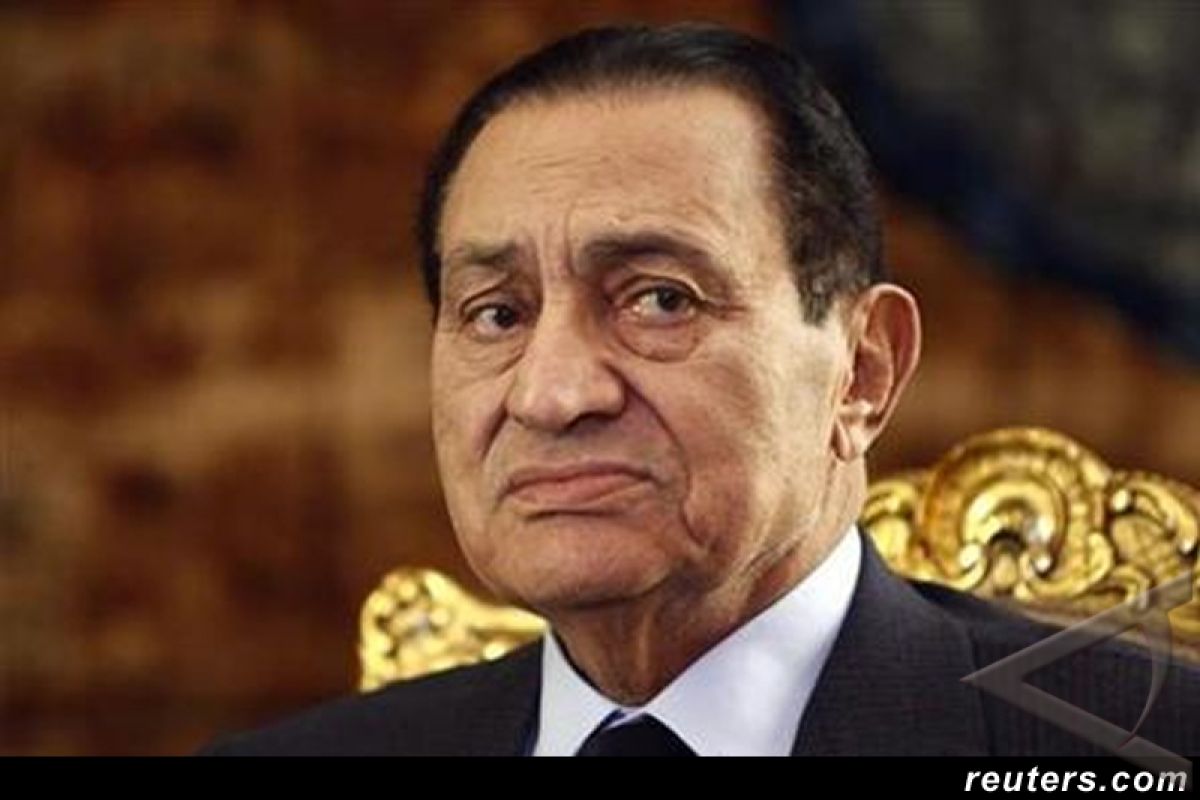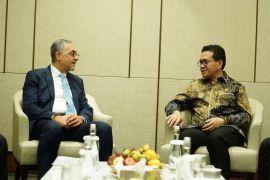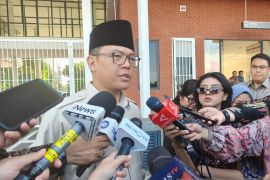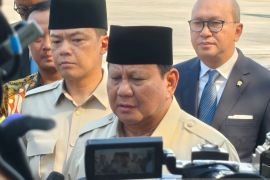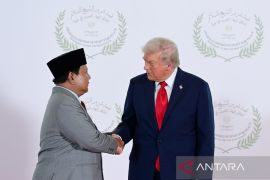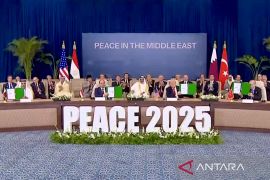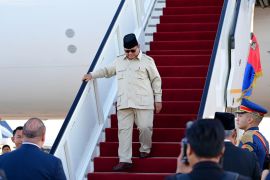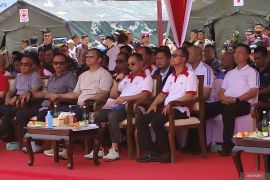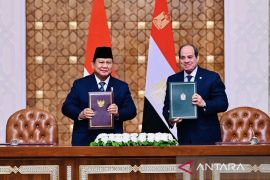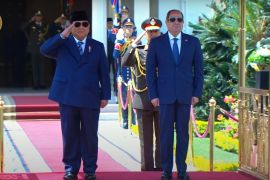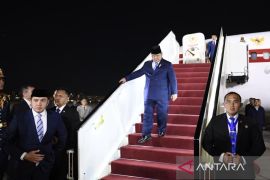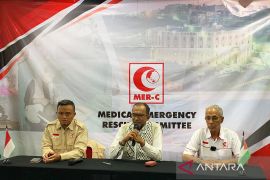In an address that failed to meet demands by protesters for him to step down immediately, Mubarak, 82, appeared to step aside by handing over the reins of power to his deputy, Omar Suleiman, a former intelligence chief trusted by Washington.
Protesters in Tahrir Square, waved their shoes in dismay at the speech, shouting: "Down, Down, Hosni Mubarak" enraged by the fact that the president had not stepped down.
Mubarak repeated that he would not stand for the presidency in a September poll and said talks with the opposition, which would have been unthinkable before Jan. 25 when protests began, had led to preliminary consensus to resolve the crisis.
Egypt was heading to a peaceful transfer of power, said the president, stating that he believed in the honesty of the protesters` demands and intentions but underlining his rejection of foreign powers dictating events in his country.
Mubarak said he felt the pain of those who had lost family in the protests and that he was responding to the nation`s demands with commitment and said those who had died, put at possibly 300 by the United Nations, had not died in vain.
Earlier in the day, the military high command took control of the nation in what some called a military coup after two weeks of unprecedented protests.
Anything less than quitting could provoke a powerful reaction from the street where the core of protesters want his immediate resignation and reject any political manoeuvring that allows him to stay on in some capacity, perhaps as a figurehead.
The armed forces, issuing what they labelled "Communique No.1", announced they were moving to preserve the nation and the aspirations of the people. The Higher Army Council met to try to calm an earthquake of unrest which has shocked the Middle East.
News that Mubarak may hand over power, or be unseated, in this key American ally in the Middle East had provoked loud and emotional cheers in Cairo`s Tahrir Square, the focal point for pro-democracy demonstrations. But some in the crowd were quick to protest they did not want military rule.
Mubarak, a former air force commander, was not present at the council meeting. He was to address Egyptians on television.
Ahead of the address, hundreds of thousands flocked to the square and the surrounding streets with some organisers saying this had been the biggest turnout yet to celebrate their role in modern Egyptian history.
"The fact that the army met without Mubarak who is the head of the armed forces means that the military has taken over power and I expect this to be announced shortly in Mubarak`s televised speech," Nabil Abdel Fattah, at the Al Ahram Centre for Political and strategic Studies, said.
Major General Ha ssan Roweny had earlier in the day told tens of thousands of protesters in Tahrir, or Liberation, Square: "Everything you want will be realised."
People chanted: "The people demand the fall of the regime, The regime has fallen".
Others sang: "Civilian, civilian. We don`t want it military" -- a call for a freely elected civilian government. It remains to be seen how far the armed forces, which have provided Egypt`s post-colonial rulers for six decades, are ready to accept that.
Washington`s approach to the turmoil in the most populous Arab nation has been based from the start on Egypt`s strategic importance -- as a rare Arab state no longer hostile to Israel, as the guardian of the Suez canal linking Europe and Asia and as a major force against militant Islam in the Middle East.
President Barack Obama, hailing history unfolding, said the United States would support an "orderly and genuine transition to democracy" -- Washington would be publicly uncomfortable if the army held on to power, and also does not want Islamist rule.
Asked if Mubarak would step down, an Egyptian official had told Reuters before the speech: "Most probably". But his information minister had said that would not be the case.
Mubarak had previously refused to step down before September polls, saying this could lead to chaos in Egypt. He has vowed not to go into exile. "This is my country ... and I will die on its soil."
On Tahrir Square, General Roweny urged the crowds to sing the national anthem and keep Egypt safe. U.S.-built Abrams tanks and other armoured vehicles stood by.
For many, a key question is whether Suleiman might take over effective control from Mubarak -- who might stay on in a figurehead role -- or whether serving officers in the armed forces would move in instead, possibly declaring martial law.
Suleiman, promoted to be Mubarak`s deputy less than two weeks ago, is not widely popular. But a key goal for many at the protests has been for changes to laws to ensure fair elections.
Anthony Skinner of the Maplecroft political risk consultancy said: "In the best case scenario, Suleiman would take over and there would be an accelerated transition to democracy. In a worst-case scenario, this turns into effectively a military coup and the military prove not keen on a transition to democracy."
Analyst Michael Hanna from the Century Foundation said on his Twitter feed: "Will people be satisfied under military rule?
"This could create splits among the opposition, and that is probably what the army is hoping for."
Egypt`s sprawling armed forces -- the world`s 10th biggest and more than 468,000-strong -- have been at the heart of power since army officers overthrew the British-backed king in 1952.
The army quelled bread riots in Egypt in 1977 and halted a rampage by policemen over pay in 1986, but the scale of the past week`s uprising across the country dwarfs those events.(*)
Editor: Aditia Maruli Radja
Copyright © ANTARA 2011
